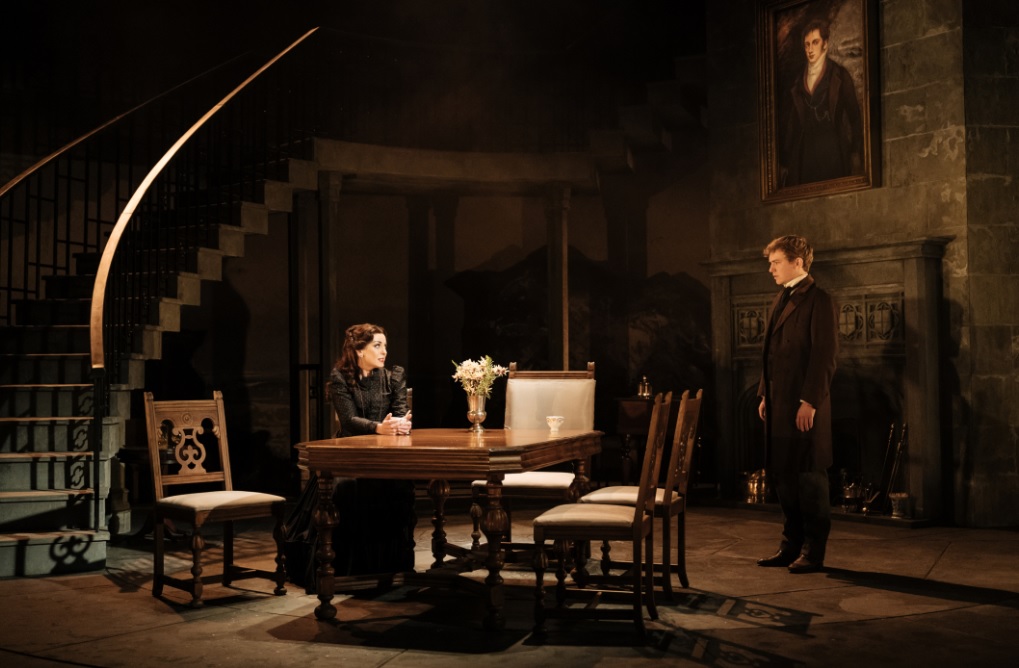This adaptation of Daphne Du Maurier’s novel, touring various venues across the UK, will surely please many. Its brilliant technical strengths excellently evoke the tempestuous and romantic Cornish landscape so beloved of Du Maurier. Moreover, the scenario is an intriguing one: a widowed and glamorous Italian Countess – Rachel – visits her late husband’s house. There, her cousin, the young heir Philip, who suspects her of causing his guardian’s death, becomes infatuated with her. Drama ensues and the ingredients – death, suspicion and romance – should, naturally, make for an engrossing psychological thriller.
Director Anthony Banks and his talented cast strive hard with a good script by Joseph O’Connor, and some great effects. Likewise, designer Richard Kent deserves special praise as the revolving set, which transports the audience between the ancient family home and wind-swept cliff-edges seamlessly, and is complimented by strikingly atmospheric sound and lighting. The use of Cornish language and legends is a nice touch, and beautiful Italian references enrich the narrative alongside the well-crafted set-pieces.
Despite these successes, the play does fall short as a result of its 19th-century Gothic setting – heightened by the wonderful technical work – which should intrigue us far more than it does. This genre just doesn’t sit well with more modern and naturalistic tones and there is a lack of edge in the central relationships: we do not sense danger or threat in the bland and inoffensive chit-chat. For all her graceful movement and beauty, Helen George seems reluctant to suggest enough of Rachel’s dark side, and a somewhat strident voice offsets her clear delivery – although this may soften with the tour. The wholehearted performances of Jack Holden as Philip Ashley, and Simon Shepherd as Nicholas Kendall demonstrate the skills and experience on show, and a good supporting cast does its best to create occasional flutters of interest. Certainly Holden portrays Philip’s changing character with zeal, but his changes seem too extreme and rapid. The play hinges on his youthful, capricious nature, and perhaps the stage cannot do justice to the novel’s character development.
This is no Rebecca or Jamaica Inn, it’s not even a Poldark as the production seems somehow to punch below its weight. The gender-relations of the narrative – a woman is very much an outsider in this male environment – do not resonate enough to deepen the play’s thematic impact. My Cousin Rachel – at this stage in its tour – unfortunately offers limited emotional engagement for the audience. This is a decent production, which will provide a good evening at the theatre for many, but you get the feeling something was lost on the long journey from Bodmin.
